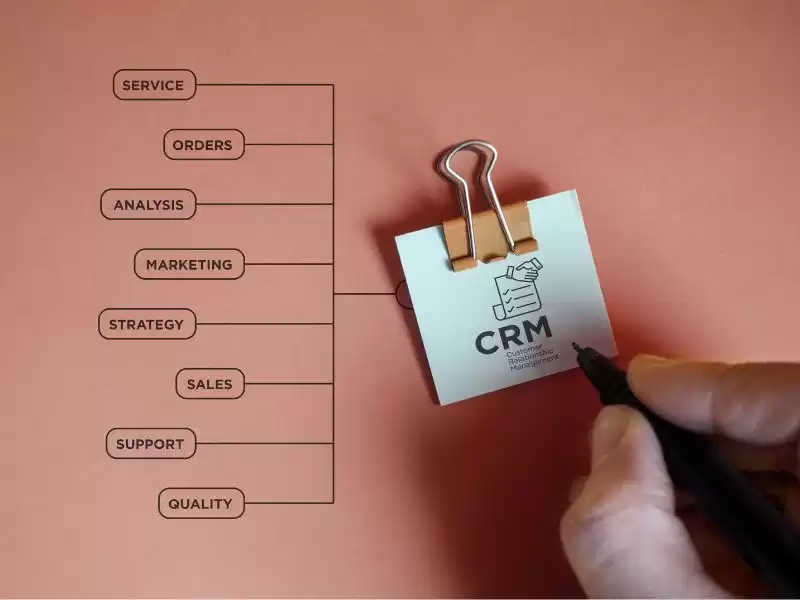
- 07.04.2023.
- Sale
There are numerous challenges that B2C sales face, but the main ones – retaining and attracting customers are key to maintaining business and its growth. But, the question is how to actually improve sales and what is the key to success?
Finding potential customers is generally not a problem for B2C organizations. With digital marketing, events, outsourcing agencies and other sources, companies generate a significant number of potential clients.
However, nurturing leads and pulling them down the sales funnel represents the main challenge for sales teams.
Another urgent challenge facing B2C sales is the inability to close potential clients. Since there are so many different sources of potential clients (online, offline, brokers), it’s crucial to close as many as possible in the shortest amount of time.
The most urgent challenges that sellers emphasize include:
- Quality of potential customers: Sales teams spend a lot of time convincing uninterested potential clients or casual inquiries. This affects their speed of bringing up qualified potential clients.
- Prioritization: Generally, salespeople deal with potential clients on a first come, first served basis. This is not an optimal method because they waste time nurturing unwanted potential customers or potential customers who will never make a purchase.
- Incentives: Many sales representatives are unsatisfied with the bonus or incentives they receive.
How to improve B2C sales?
It's essential to align both; marketing and sales strategy to improve B2C sales. Generating potential clients through marketing will not bring any business results if the sales process is not optimized for conversion.
Therefore, the coordination of sales and marketing teams is crucial nowadays. However, this is not enough.
In order to achieve better results, you must invest in technologies that can improve the productivity of your sales teams.
Qualification of potential clients
As the salespeople say – they waste a lot of time and effort while communicating with casual inquiries and lose potential customers who have a higher chance of conversion. You can filter potential clients in order to solve this problem.
By tracking the source of potential client, the amount of time they spend on your website and whether they viewed your page with prices, location, etc., you can assign points to potential clients. It will help you understand the intention and the interest of potential customers for your products/services.
Of course, the potential client interested in your offer will be browsing more about you. All this information will help you identify and filter potential clients.
Distribution and prioritization
Another problem that salespeople highlighted is related to prioritization of potential customers. Instead of interacting with inquiries in sequential order, you can assign leads to sales representatives based of the above results of potential clients.

Record-keeping and reporting
The main reason of missed information is the lack of a platform for end-to-end sales activities.
For instance, you have caught potential customers through digital marketing.
The point is – to improve your B2C sales, you need a system that can contain the history of interactions and automatically generate reports.
This is where CRM comes in, which facilitates monitoring for sales representatives, automates processes and creates reports in required time periods.
Incentive calculations
If you have a set up system that monitors salesperson’s performance and conversions, you can automate incentive calculations.
We all know that incentives play an important role in motivating a team. System-defined incentive modules are more accurate and fact-based.
Training and knowledge sharing
Sales teams must know the product/services well. They must also know the competitors' offer.
For example, a customer may ask why they should buy your product/service instead of your competitors? If the sales representatives are not well versed in the market, they may not be able to convince the customer.
Proper training and product knowledge are crucial
Although direct selling through websites is on the rise, the need for sales interaction is still intact. Retail may have seen a shift from selling to a support role to some extent, but many other industries rely heavily on sales through agents and face-to-face interaction with customers.
Key to success in B2C sales includes efficient marketing, synchronization between sales and marketing, and automatization of the sales process in order to improve the productivity of sales representatives. By streamlining your internal sales process, you can achieve better sales goals with the same resources.
Categories of trends
- News
- Sale
- Marketing
- SEO
- Web design
- Social media
- Technology
- Regulations
- Management
- Education
- Finances
- User experience
Newsletter
Sign up for the newsletter and receive the latest trends and tips straight to your inbox






